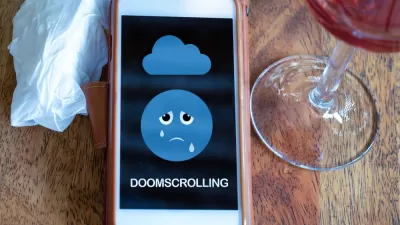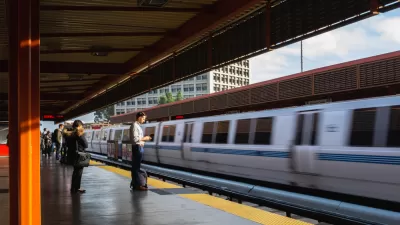Here's a counter-intuitive proposition for transit agencies: feed the Twitter trolls.
Conventional wisdom says not to feed the trolls—the antagonistic group of naysayers and critics with nothing nice to say on the Internet—but a recent study by University of Southern California professor Lisa Schweitzer finds evidence that transit agencies might be better served by responding to online commentary.
Andrew Keatts reports on the study, summing up its findings: "transit agencies might not want to just bury their heads in the sand. Agencies that engage directly with Twitter users, rather than simply blasting out service announcements, end up seeing significantly more positive discussions about them on the social media service…"
Keatts details the findings of the study, which includes an analysis of 64,000 tweets about public transit agencies—most of them bad. The key takeaway for transit agencies, however, is that they aren't helpless in the face of this criticism.
FULL STORY: Why Transit Agencies Should Feed Twitter Trolls

Alabama: Trump Terminates Settlements for Black Communities Harmed By Raw Sewage
Trump deemed the landmark civil rights agreement “illegal DEI and environmental justice policy.”

Planetizen Federal Action Tracker
A weekly monitor of how Trump’s orders and actions are impacting planners and planning in America.

The 120 Year Old Tiny Home Villages That Sheltered San Francisco’s Earthquake Refugees
More than a century ago, San Francisco mobilized to house thousands of residents displaced by the 1906 earthquake. Could their strategy offer a model for the present?

Ken Jennings Launches Transit Web Series
The Jeopardy champ wants you to ride public transit.

BLM To Rescind Public Lands Rule
The change will downgrade conservation, once again putting federal land at risk for mining and other extractive uses.

Indy Neighborhood Group Builds Temporary Multi-Use Path
Community members, aided in part by funding from the city, repurposed a vehicle lane to create a protected bike and pedestrian path for the summer season.
Urban Design for Planners 1: Software Tools
This six-course series explores essential urban design concepts using open source software and equips planners with the tools they need to participate fully in the urban design process.
Planning for Universal Design
Learn the tools for implementing Universal Design in planning regulations.
Clanton & Associates, Inc.
Jessamine County Fiscal Court
Institute for Housing and Urban Development Studies (IHS)
City of Grandview
Harvard GSD Executive Education
Toledo-Lucas County Plan Commissions
Salt Lake City
NYU Wagner Graduate School of Public Service





























